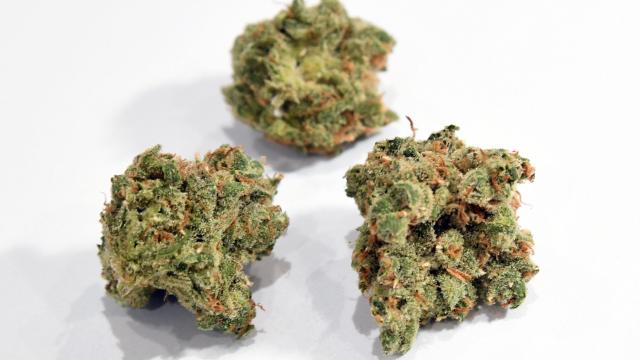For as mainstream as marijuana is becoming, there are still some who are worried about the unforeseen consequences this new social acceptance has or could bring about – from car crashes. But a new review published this week in Addiction suggests that at least one of these worries hasn’t come true: Teens aren’t smoking more pot in places where it’s become legal as a medicine.
The researchers studied data from 11 separate studies, including four large, US representative surveys that are still ongoing. That allowed them to pool together and analyse rates of teen cannabis use from as early as 1991 all the way to 2014. They then compared rates in US states before and after they had passed a medical marijuana law to states that never did.
“The results were quite clear – medical marijuana laws did not lead to increases in teen marijuana use,” senior author Deborah Hasin, a epidemiologist at Columbia University, told Gizmodo via email.
The findings reaffirm earlier research that Hasin and her colleagues had published in 2015, which found a similar null effect. At the same time, though, Hasin said there’s still lots of unanswered questions about how the legal landscape may change people’s pot habits in general.
For one, there does seem to be evidence that medical marijuana laws have led to increases in pot use among adults or cannabis abuse disorders. And it’s possible that a real increase among kids might have happened after 2014.
The findings also say nothing about the effect that full-tilt legalization laws that have passed in states such as Colorado could have. “Experts generally agree that recreational marijuana laws are likely to have stronger effects than medical marijuana laws,” Hasin said. “The $10 billion cannabis industry is looking to triple by 2025, and commercialization may have impacts on both adults and teens.”
Her team has looked at that question specifically, but came away with no consistent answers. They published a 2016 study in JAMA Pediatrics that found teen use jumped in Washington following recreational pot legalization, but not in Colorado. That ambiguity highlights the need for more research, according to Hasin.
Above all, Hasin said that people shouldn’t take her team’s findings as evidence that pot is harmless to either teens or adults.
“The fact that medical marijuana laws did not lead to increases in teen use does not diminish the importance of addressing early teen use when it happens, regardless of the state law, given that early use increases the chances of longer-term harm,” she said.
And while some adults can use marijuana without consequence, she added, “its use does involve risk for withdrawal, cannabis use disorder, and vehicle crashes. These risks need to be taken into account to have a balanced view.”
On the bright side of things, it does seem that teens are turning to marijuana less than ever before. The 2017 version of the National Survey on Drug Use and Health, for instance, found that only 6.5 per cent of children from the ages of 12 to 17 had used cannabis in the past 30 days, a low not seen since 1994.
